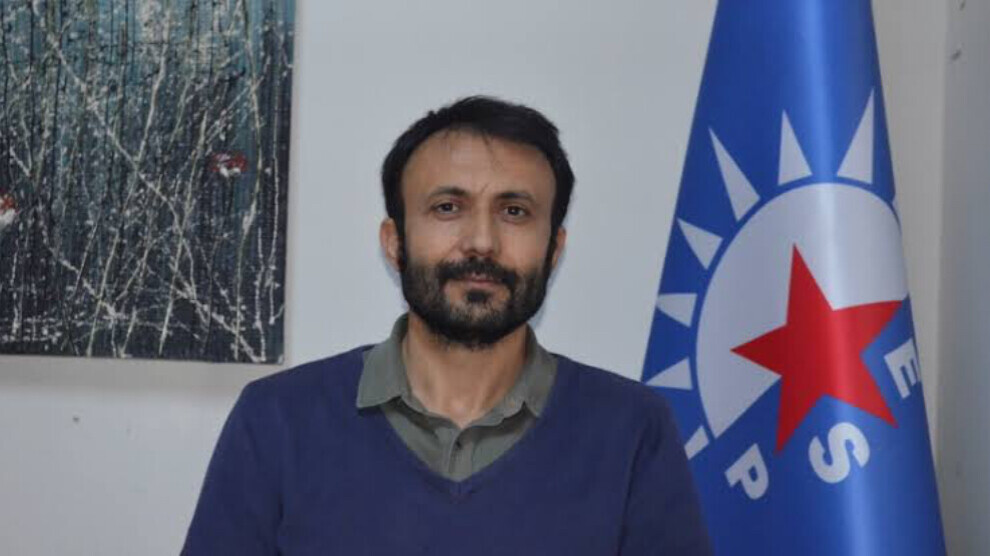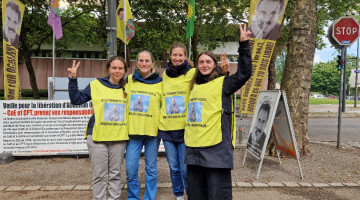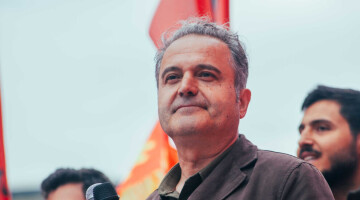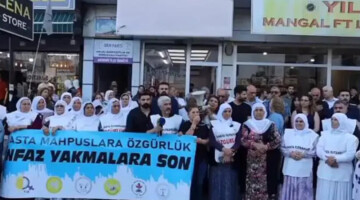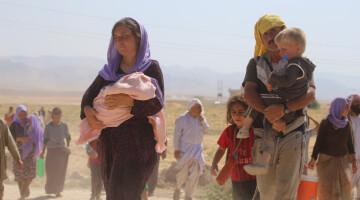ESP (Socialist Platform of the Oppressed) co-chair Şahin Tümüklü is used to compare the Sri Lankan government's bankruptcy with the oppressive Turkish state, while trying to solve the problems in the country by putting pressure on people. Underlining that Sri Lanka is a colonial country just like Turkey, Tümüklü told ANF that many of the colonial country's peoples are in revolt. He underlined the need for this popular uprising against poverty, unemployment and exploitation to be organized, and recalled the victory of the Rojava Revolution.
No way out if we stay in this system
Tümüklü said that it is not possible to get rid of capitalism by staying in it, and added: “Unless capitalism can manage its own crisis, the crisis deepens. There is a crisis the world is going through. Although there are various thresholds in various periods to overcome the crisis, this has become unmanageable, especially when the Covid-19 pandemic experienced in the last three years and the start of different process are combined. When the Russia-Ukraine war and the Middle East issues are combined, we can better see a deadlock that deepens this current economic crisis and pave the way for new crises. Capitalism is struggling to expand its markets to solve its own crisis, further deepened by the Ukraine-Russia war. The bourgeois style of politics no longer has the chance to rule the crisis, it has neither the ability nor the quality to do that.
The peoples of the world do not occupy the same place in capitalism. In the unequal income market of capitalism, crises are experienced more severely in different parts of the world. Millions of people are on the move for a better life. In much of the world, unemployment is rampant. Naturally, the crisis created by hunger, poverty, unemployment and war will never end, and can be better seen on a ground where capitalism's anarchic production and competition system and its effort to seize markets are more evident. There is no way out when you are inside capitalism, because capitalism is a system that serves its rulers. All production, consumption, circulation and politics serve the bourgeoisie and its parasite.”
Underlining that the Turkish state’s ruling style is similar to that of other countries where popular uprisings started, Tümüklü said: “Sri Lanka and Turkey have similar positions in sovereignty relations. Both are colonial states. In a place where capitalism has deepened so much, energy and food supply problems are experienced and inflation is very high, dependent or colonial countries have no chance to turn themselves around. Today, in many parts of the world, there are rebellions in the colonies. There is a world reality where workers, the poor, the unemployed and refugees are on the move everywhere. Look at Sri Lanka, Argentina, Chile, Albania, Macedonia."
People can succeed
Stating that Turkey and Sri Lanka are similar in their own country's originality as well as their economic dependency, Tümüklü continued as follows: “Turkey is pursuing a colonial policy on the Kurdish issue. Sri Lanka’s security policy focused on suppressing Tamil guerrillas. Naturally, they spend their great resources on war. Again, the forms of state administration are very similar. Both countries use criminal methods. There are gangs affiliated with the presidency in Sri Lanka, just as there are gangs affiliated with the AKP in Turkey. In this sense, in Turkey, too, it is possible that a crisis erupts at any moment. I am thinking of a revolt like Gezi Park or Kobane, because there is no chance to overcome the crisis as it is. There is no way out with capitalism's own way of organization and this capital order. A way out is only possible with the popular uprising and its development along a revolutionary line.”
In one of her articles, former Peoples' Democratic Party (HDP) co-chair Figen Yüksekdağ said: "The period we are going through refers to a period of time when possibilities and risks are intertwined, and depending on who stands where and how they will intervene, the possibility or the risk will prevail."
Recalling these words, Tumuklu; “Undoubtedly, the risks stated by Figen Yüksekdağ are clear: the rise of fascism, the rise of wars, and the acceleration of capitalism's destruction of the world. On the one hand, this scenario provides an opportunity where hope and resistance lie on popular uprisings.
Nothing is impossible. It is a matter of ‘existence or absence’ of an organized and united struggle that will turn the anger of the people into rebellion, on a ground where there is so much hunger, poverty and misery. Except for the Rojava Revolution, almost all recent uprisings have faded away. Because they were lacking a unified revolutionary leadership. In this respect, there is a real need for a revolutionary leadership in Turkey that will enable an uprising similar to Gezi and Kobane to occur and amplify these contradictions. We, the workers and those who defend the oppressed, are responsible for organizing the anger of the people. In Turkey, this is not a very distant possibility."

